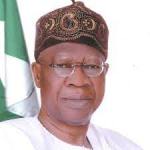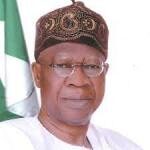Kano State in North-west Nigeria has joined six other states that have completed the Digital Switch Over (DSO) to migrate digital terrestrial broadcasting under the second phase of the national DSO programme.
The first rollout was launched in Jos, Plateau State on April 30, 2016; Abuja, FCT on December 22, 2016; Ilorin Kwara State on December 20, 2017; Kaduna, Kaduna State on December 22, 2017; Enugu, Enugu State on February 12, 2018; and Osogbo, Osun State on February 23, 2018. Lagos State was switched over on April 29, 2021 at the herald of the second phase of the programme.
The transition from analogue to digital broadcast technology in the state was launched at the Government House in Kano with dignitaries from across the country in attendance.
Kano State Governor, Dr Abdullahi Ganduje, who performed the switch over, said the new technology would provide an opportunity for the people to have access to local, national and international space and use the content for public engagement.
Gov. Ganduje also declared that effective from December 2021 analogue signals will no longer be available in the state as every household must now have a Digital Set Top Box (decoder) in order to receive TV signals at home.
Nigeria embarked on the journey towards Digital Terrestrial Television (DTT) broadcasting on June 17, 2006, following the deadline of June 15, 2015, set by the International Telecommunications Union (ITU) for member countries to transit from analogue to digital broadcasting.
Ganduje noted the DSO is pivotal to the digital economy of the country as it is capable of creating jobs and bringing governance closer to the people.
To facilitate access to signal for all, the state government is partnering the manufacturers of the decoders to support indigent households in the 44 local government areas for the provision of 100,000 units of subsidised decoders, beginning with 10,000 units for the first phase of the supply.
He said the state government had also directed the supply of 44,000 STBs to the 44 local governments at the rate of 100 per local government, with the primary health care centres, community viewing centres, government education authorities, primary and basic schools, as well as local government councils as prime beneficiaries.
“The DSO project would also be a great platform for the entertainment industry to key into by using technology to enhance their services not only for high fidelity sound and picture but also create more jobs for our teeming youth and stimulating local content,” Ganduje said.
In his remarks, the Chairman, Set Top Box Manufacturers of Nigeria (STBMAN), Sir Godfrey Ohuabunwa described the transition of Kano State into digital broadcasting as a testimony of perseverance and determination after a series of setbacks and missed deadlines.
He said the DSO project would mark the beginning of the democratisation of television and leisure in the country as it will bridge the gap that exists between the common man and the upper crust of society.
Ohuabunwa said that the onus is now on the stakeholders to transform the directives of the ITU on the switch on into an experience for every Nigerian to progress to the next level until when broadband is available in every home.
He likened the Set-Top Box as a first step into the world of digital television broadcasting adding decoders would provide the Nigerian citizen with every type of television experience imaginable at an affordable price.
When fully completed the DSO project will translate to increased digital television penetration, improved quality TV services, audience preference ratings, crystal clear sound and visuals in addition to other value-added services.







